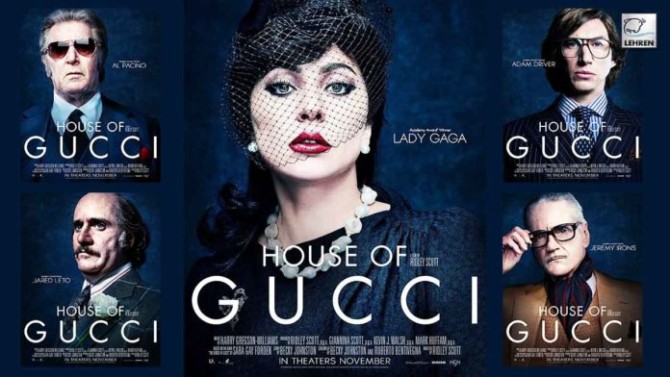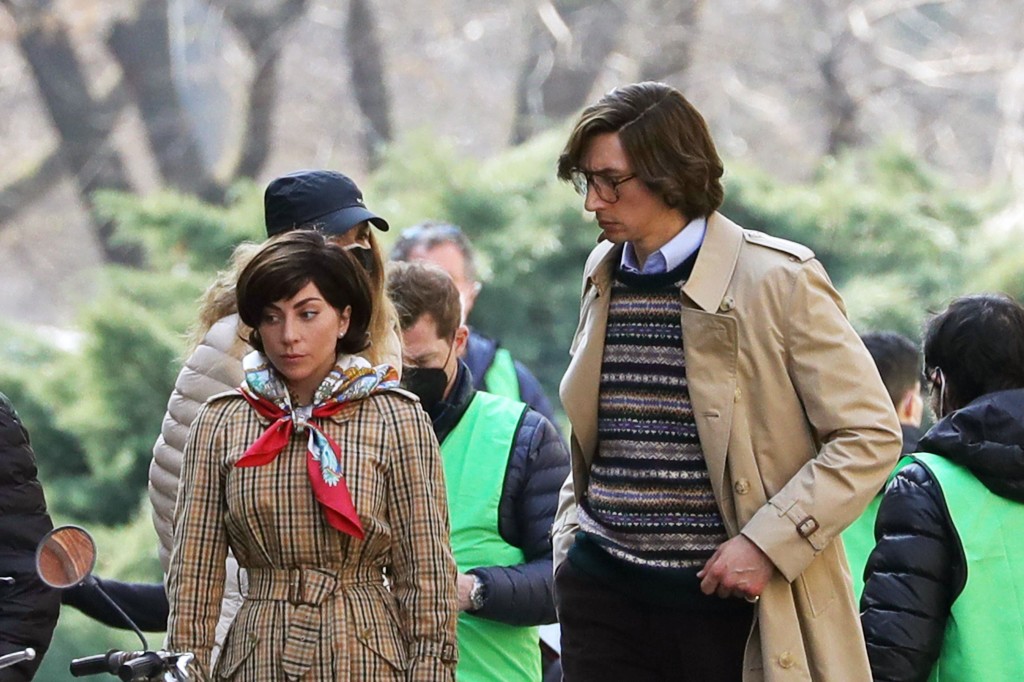Is Gucci the best ‘dysfunctional family’ script ever written?
Genre: Biopic
Premise: Follows the notorious Gucci family, specifically the relationship between Maurizio Gucci and his blue-collar wife, Patrizia.
About: For a director in his 80s, Ridley Scott sure does get around. Gucci is a huge awards contender this year. We may have finally found a non-Star Wars movie where Adam Driver doesn’t just get recognized for his amazing acting, but also makes some money! Lady Gaga also stars. The script was written by screenwriting newcomer, Roberto Bentivegna.
Writer: Roberto Bentivegna (based on the book by Sara Gay Forden)
Details: 133 pages
Readability: Medium
I was kind of interested in this one because I know ZERO about Gucci. I didn’t even know what Gucci’s first name was. I thought he was like Madonna. One name only. I figured I was going to get some early version of the Kardashians with “Gucci” – something vapid and empty. But it turns out the Gucci story is a lot more interesting than you might have thought.
It’s 1975 in Milan, Italy. 25 year old Patrizia Reggiani (who will be narrating our story) is trying to get a man. Or, I should say, her mother is trying to get her a man. And since they’re poor, her mother’s got her sights set on the richest people in Italy. She spends all day looking up parties and calling up rich families to try and get her daughter near super rich men.
They finally strike gold when Patrizia charms a young Maurizio Gucci at a party. Patrizia is relentless in her courting of Maurizio and, soon, they’re married. But nobody on the Gucci side of the family shows up to the wedding because they believe all Patrizia is interested in is the money. Which we’re meant to believe she’s not (more on that later).
We then meet the Gucci family. And boy are they unique. Gucci, if you don’t know, is an upscale clothing brand. You have Aldo, 70, who’s the skirt-chasing current CEO of the company. You have his son, Paolo, who thinks he’s a designer but is the least-talented designer in all of history. You have Rodolfo, who’s Aldo’s brother and Maurizio’s dad. He just loves the lavish lifestyle Gucci has allowed him to live. And then you have Maurizio, who doesn’t really want anything to do with Gucci.
But that’s about to change. Patrizia realizes Gucci could be so much more than it is. So she starts putting a plan together to give her and Maurizio total control of the company. First, she gets Aldo put in American prison for tax evasion. She then gives Paolo enough money to start his clothing line, which, of course, fails, and when he’s left with nothing, she forces him to sell his quarter of the company to them. This leaves Rodolfo, who conveniently dies. Which means Maurizio and Patrizia now own the company.
But just when it looks like all of her dreams have come true, an old female friend comes back into Maurizio’s life, wins him over, leading to Maurizio and Patrizia’s separation. Patrizia is so devastated that she tries everything in her power to get him back. But he tells her that she destroyed his family and doesn’t want her in his life anymore.
I’m going to get into major SPOILER territory for the rest of the review but you probably already know this. Patrizia hires a couple of hitmen to kill her husband. Which they do. And she actually thinks she’s going to get away with it and obtain the entire Gucci fortune. Unfortunately, it doesn’t take the cops long to connect the dots and send her to prison for 30 years. Which means she should be getting out soon! All you elderly rich bachelors, be on the lookout!
Man, what a script!
I always forget how powerful tragedy narratives can be when the characters are actually interesting. Last week we had Plush. And that guy was *kind of* interesting. But this family is the craziest weirdest family ever. None of the Guccis knew what they were doing and they were running one of the most famous fashion brands in the world.
To remind screenwriters everywhere, when you don’t have a goal-driven screenplay like, say, the recent “Love and Monsters” (travel across the forest to find a girl), you can use this formula whereby the main character is trying to BUILD SOMETHING. In this case, Patrizia is trying to build an empire. She’s trying to consolidate Gucci so that her and her husband can run it. That’s why we keep turning the pages. We want to see if she succeeds.
Speaking of Patrizia, I do not envy the challenge Bentivegna had with her.
He’s working with an extremely unlikable person in Patrizia. I mean, anyone who kills their husband is obviously not the best. But he can’t show that or else we’re not going to root for her. So the script engages in this endless dance of figuring out clever ways to make Patrizia not look as bad as she is and still have her do bad things.
For example, Bentivegna knew that if he had Patrizia hunting around Italy for rich men only, we’d hate her. So he shifts that responsibility over to the mom. It’s the mom who’s dead set on Patrizia finding a rich husband. Patrizia is innocent in all of this – wink wink.
Likewise, whenever she talks to Maurizio (or anyone else for that matter), she’s perfectly nice to them. And not in a conniving way. She’s genuinely nice. But then, out of nowhere, she’ll savagely manipulate Paolo to take his quarter of the company. For a while, I kept wondering why someone so nice was doing these things. And then I realized, oh, she was a terrible person in real life but they know if they show that, we’ll hate her and tune out.
Despite cheating on that front, the script still works. I think it’s because there’s so much conflict baked into this family. Nobody likes each other. They’ve all got different ideas on how to run the company. They’re all protecting their percentage of the fortune. And then you have this wildcard in Patrizia who’s trying to shuffle the deck and when you mix all that conflict together, it’s only natural that it will be entertaining.
I don’t think there’s a bad scene in the entire script.
I also give credit to Bentivegna for not making a common mistake made in these screenplays – which is that when writers take on a real-life murder story, they don’t actually write a story. They write the ending, where the person is murdered. Then they go back and write 100 pages of filler to get us there.
With Gucci, I wouldn’t have even cared if there wasn’t a murder. That’s how good the story was. I loved watching the dimwitted Paolo try to launch his own clothing line and come up with the most disastrous fashion show in history. I liked that the two brothers didn’t see eye-to-eye on business whatsoever so they just ran their halves separately. I loved the infighting as well as the fighting with the other major Italian fashion brands.
And I just loved learning little details about the company. That one of the reasons their products are so amazing is because they raise the Rolls Royces of cows. Or that they – as in Gucci – deliberately sold knock-off versions of Gucci on the street just to make a little more money.
Like I said at the top of this review, this is probably the best dysfunctional family script I’ve ever read. Every single character is memorable. That alone should inspire you to read it. Because, remember – the hardest thing to do in screenwriting is write memorable characters. And this script excels at that. So check it out. It’s well worth your time!
[ ] What the hell did I just read?
[ ] wasn’t for me
[ ] worth the read
[x] impressive
[ ] genius
What I learned: Offload some of your “unlikable” protagonist’s dirty work to a secondary character. This will make them less unlikable. That’s what Bentivegna does here. He takes Patrizia’s worst traits, such as being a gold digger, and moves that motivation over to her mother. It’s a small detail but it has major ramifications in how we view the hero.



